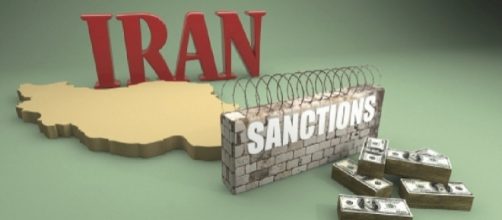When General Michael Flynn "threatened" Iran during the middle of the Trump administration's second week, the consensus view was that military action was on the table. It took the media speaking with various officials to confirm that this was the case, but the administration was less-than-vague as to the actions they were going to take. What followed instead were more sanctions against iran.
Michael Flynn wants Iran regime change, of that he has made no secret. But sanctions are hardly a start for the kind of regime change he wants. Last December, the Obama administration refused to sign a renewal of the Extension of the Iran Sanctions Act, which caused it to default into law for which they also said that doing so did not violate the Iran Nuclear deal.
The effort to renew the Iran Sanctions Act was deliberately pushed by conservatives hardliners against Iran.
The Trump White House isn't as tough as they seem
While the Trump administration has imposed new sanctions against Iran, various reports say that anything harder would mean that the United States violates the Iran nuclear deal. The Trump White House has already walked a thin line with tradition, with the law and with many of their actions on a daily basis which clearly, they are not afraid to do. This being the case, why not just go ahead and violate the Iran nuclear deal Trump believes is so “terrible"?
So far, it seems that with Michael Flynn's threat from the podium to build the illusion that the Trump presidency is being "tough," they've only repackaged the same provocations as strength because according to a report by The Hill on the new sanctions, “the sanctions themselves aren't much of a departure from the Obama administration's handling of Iran's missile program.”
Trump's sanctions on Iran are the same as Obama's
Iran says U.S. sanctions stop American oil firms taking part in projects https://t.co/6DHCpYNOg9 pic.twitter.com/GphLiaehtn
— Reuters Top News (@Reuters) February 6, 2017
In a February 8 interview with House Speaker Paul Ryan on PBS NewsHour, he said he was glad that the Trump White House had enforced sanctions and that the Obama administration should have done it a year ago.
But The Hill continues to say that in January 2016, nearly a dozen Iranian-linked entities were sanctioned by the Treasury Department for their involvement in Iran's ballistic missile program, just like the move the Trump White House made.
So it would not only appear that the claim that President Obama refused to enforce sanctions on Iran is incorrect but, that these sanctions are also no different from those imposed before. The Trump administration says that the ballistic missile program is a violation of the Iran nuclear agreement because those missiles could deliver nuclear warheads. But Iran disputes this and Russia – who are supporters of Iran – also disputes that they violated the deal, saying that the resolution itself is a “call” rather than a “ban.”
A change in tune
The article also points out that the latest sanctions are violating the intent rather than violate the resolution.
During the sanctions expansion incident with President Obama last year, the administration made the point that they wanted other nations to follow through and put their own sanctions on Iran. This appears to be the case now with reports that Israeli Prime Minister Netanyahu also wants other nations to do the same. In his visit to Downing Street during his first week, he made a similar call on the agenda for everyone involved with sanctions on Iran according to The Guardian.
“... I welcome President Trump's assistance of new sanctions against Iran, I think other nations should follow suit, certainly responsible nations. And I'd like to talk to you about how we can ensure that Iran's aggression does not go unanswered.” British PM Theresa May said that they had agreed after the meeting that they support the nuclear deal.
Despite Netanyahu being the most persistent with wanting to stop the deal the Obama administration made, he has also chimed in with those who agree that the deal should stay. Despite Michael Flynn's stance, it looks as if the tension is for nothing.

